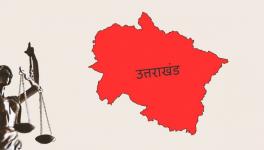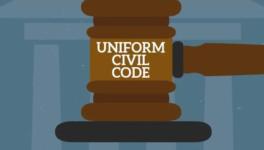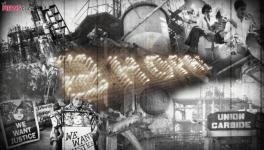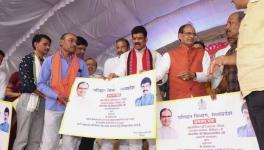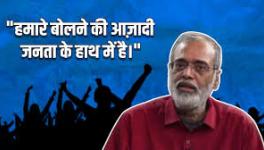Union Carbide Continued its Business in India for 14 Years After Bhopal Gas Tragedy Through "Dummy" Firms
Image Courtesy: NDTV
An investigation by The Reporter's Collective for Al Jazeera has the Union Carbide Corporation (UCC), the company responsible for the deaths of an estimated 15,000 people in the Bhopal Gas Tragedy, continued to operate in India for years after the disaster. UCC's access to Indian markets continued unabated through a Mumbai-based chemical trading firm Visa Petrochemicals Private Limited.
The investigation found out Visa Petrochemicals sold UCC's products for around 14 years while the parent company was evading "criminal trials for spewing lethal gases that killed the residents of Bhopal on the midnight of December 2, 1984. At the same time, a Bhopal Court had declared Warren Anderson, UCC's then CEO, a fugitive and ordered a seizure of the properties and products of UCC and its subsidiaries.
However, the court order did not stop UCC from selling its products to various state and Central government firms and some large private corporations. Surprisingly, even a Madhya Pradesh-based government firm, the state where the disaster happened, all bought UCC products.
The firms established to continue its business in India by UCC were called "front" and "dummy" companies. The main task of these firms was to take orders from Indian customers on behalf of UCC, relabel the products, route them through multiple ports, and supply them to the customers. While the company's assets were seized after the court order, it was not explicitly prohibited from selling its products and goods.
The government firms who bought UCC products were aware of this backdoor arrangement which continued until 2002, "a year after American giant Dow Chemicals bought all asserts of Carbide for $9.3bn. Bharatiya Janata Party (BJP) and Congress governed during that period in India.
Visa Petrochemicals and UCC signed an agreement for the former to become the latter's "non-exclusive distributive in India" in November 1987; this happened as the Central Bureau of Investigation (CBI) was about to file charges against UCC. The agreement required Visa Petrochemical to "canvas and promoted sales" of UCC products. Following that, UCC incorporated a new subsidiary- Carbide Asia Pacific- to ensure that its Asia businesses were carried out by a firm not named in the case.
The company and Anderson were declared "absconders" by a Bhopal court in 1992 for evading criminal lawsuits.
"The accused Union Carbide USA wants to evade the prosecution going on in this court by transferring its properties in India by any means," the court noted. The order made it difficult for UCC to carry out its backdoor operations. However, Ajay Mittal, a businessman from Mumbai, met UCC officials in February 1994 and proved crucial in fulfilling UCC's "legal requirements to distance from India." Mittal started the Mega Global Services firm to buy UCC products and resell them to Indian customers. After the firm was established, UCC revoked its agreement with Visa Petrochemicals and signed a new one with Mega Global Services. This continued till 1998, when the firm was replaced by MegaVisa Solutions Pte Ltd., also owned by Mittal.
During these 14 years, many government-owned firms, such as Gas Authority of India Ltd, Hindustan Photo Films Manufacturing Company Ltd, and Hindustan Cables, were actively involved in business with UCC's backdoor firms. Not only that, the subsidiary firms operated with a degree of influence within the ranks of the government. For example, in 2002, MegaVisa "managed to convince the Indian telecom department (DoT) to float a tender for the purchase of a cable product."
All of these backdoor deals were happening as UCC was refusing to pay compensation to the victims of the Bhopal disaster. The compensation it eventually paid was 1/6th of the compensation demanded by the government. A case related to the Bhopal tragedy is still going on in the Supreme Court; as victims were denied justice, UCC carried on business-as-usual.
Get the latest reports & analysis with people's perspective on Protests, movements & deep analytical videos, discussions of the current affairs in your Telegram app. Subscribe to NewsClick's Telegram channel & get Real-Time updates on stories, as they get published on our website.










